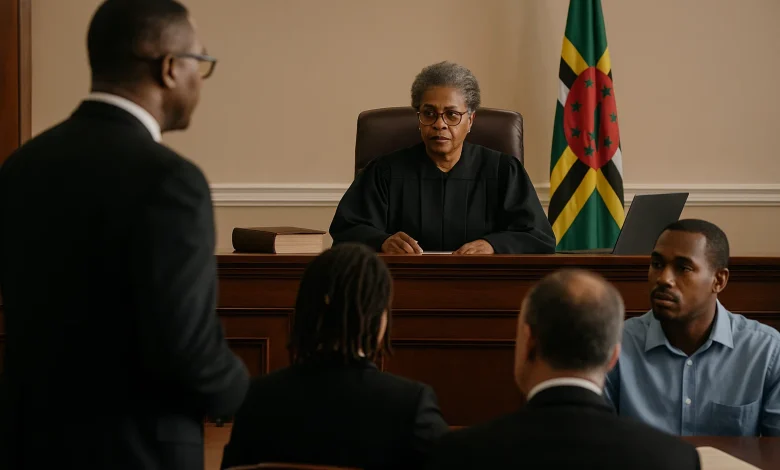Court of Appeal in Dominica

The Court of Appeal in Dominica forms part of the Eastern Caribbean Supreme Court (ECSC), which serves the Organisation of Eastern Caribbean States (OECS). It acts as the appellate jurisdiction for civil and criminal cases arising from Dominica’s High Court and Magistrate’s Court. The Court of Appeal travels between OECS member states and sits in Dominica on scheduled circuits. Since 2015, final appeals from Dominica go to the Caribbean Court of Justice (CCJ), replacing the Judicial Committee of the Privy Council as the highest court.
Historical Development of the Court System
Dominica’s judicial framework is rooted in its colonial past. For much of the 20th century, appeals progressed from the local High Court to the Windward Islands Court of Appeal, then ultimately to the Privy Council in London. With the creation of the Eastern Caribbean Supreme Court in 1967, the appellate system was restructured into a regional court shared among OECS states. This arrangement continues today, giving Dominica access to judges, legal standards, and shared institutions across the region.
A significant reform came in March 2015, when Dominica adopted the Caribbean Court of Justice (CCJ) in its Appellate Jurisdiction. This move allowed Dominica to join Barbados, Belize, and Guyana in making the CCJ the final appellate court for civil and criminal matters. It reflected Dominica’s commitment to Caribbean Integration and judicial independence from Britain. The CCJ replaced the Privy Council, making access to final appeals less costly and more regionally grounded.
Structure and Role of the Court of Appeal
The Court of Appeal sits above Dominica’s High Court of Justice and Magistrate Courts. Its primary role is to hear appeals on criminal convictions, sentencing, civil disputes, constitutional questions, and administrative law. Cases begin in Magistrate Courts, proceed to the High Court, and can then be taken further to the Court of Appeal.
The ECSC Court of Appeal does not sit permanently in Roseau but travels to Dominica during scheduled circuits, typically several times a year. Panels of three Justices of Appeal, led by the Chief Justice of the ECSC, hear and decide cases. The ECSC ensures consistency across OECS jurisdictions, applying shared principles of law while respecting local statutes like the Constitution of Dominica and acts such as the Supreme Court of Judicature Act.
The Caribbean Court of Justice and Final Appeals
Dominica’s adoption of the Caribbean Court of Justice (CCJ) as its final court of appeal was formalized on 6 March 2015. Parliament passed legislation in line with constitutional requirements, and the CCJ immediately assumed jurisdiction over Dominica’s final appeals. The shift reflected national debates about sovereignty, access to justice, and the cost of pursuing cases in London.
The CCJ now provides the ultimate level of judicial review for Dominicans, complementing the work of the Court of Appeal. Citizens may still appeal High Court and Magistrate Court rulings to the ECSC Court of Appeal, but beyond that stage, applications proceed to the CCJ in Port of Spain, Trinidad and Tobago.
Community and Institutional Importance
The Court of Appeal ensures the rights of Dominicans are protected under the Constitution of Dominica, providing a mechanism to challenge state actions and safeguard fundamental freedoms. Appeals in areas such as land law, family law, and criminal sentencing highlight its everyday importance to citizens.
Institutions like the Ministry National Security support the court system administratively, while the Dominica Bar Association represents attorneys who argue cases at appellate level. The shift to the CCJ has also inspired academic and civic discussions in universities and civil society organizations about sovereignty and judicial independence.
The Court of Appeal in Dominica thus occupies a critical place in the island’s governance. It bridges the local High Court with the regional ECSC structure, and through the CCJ, connects Dominica to the wider Caribbean’s evolving judicial landscape.




